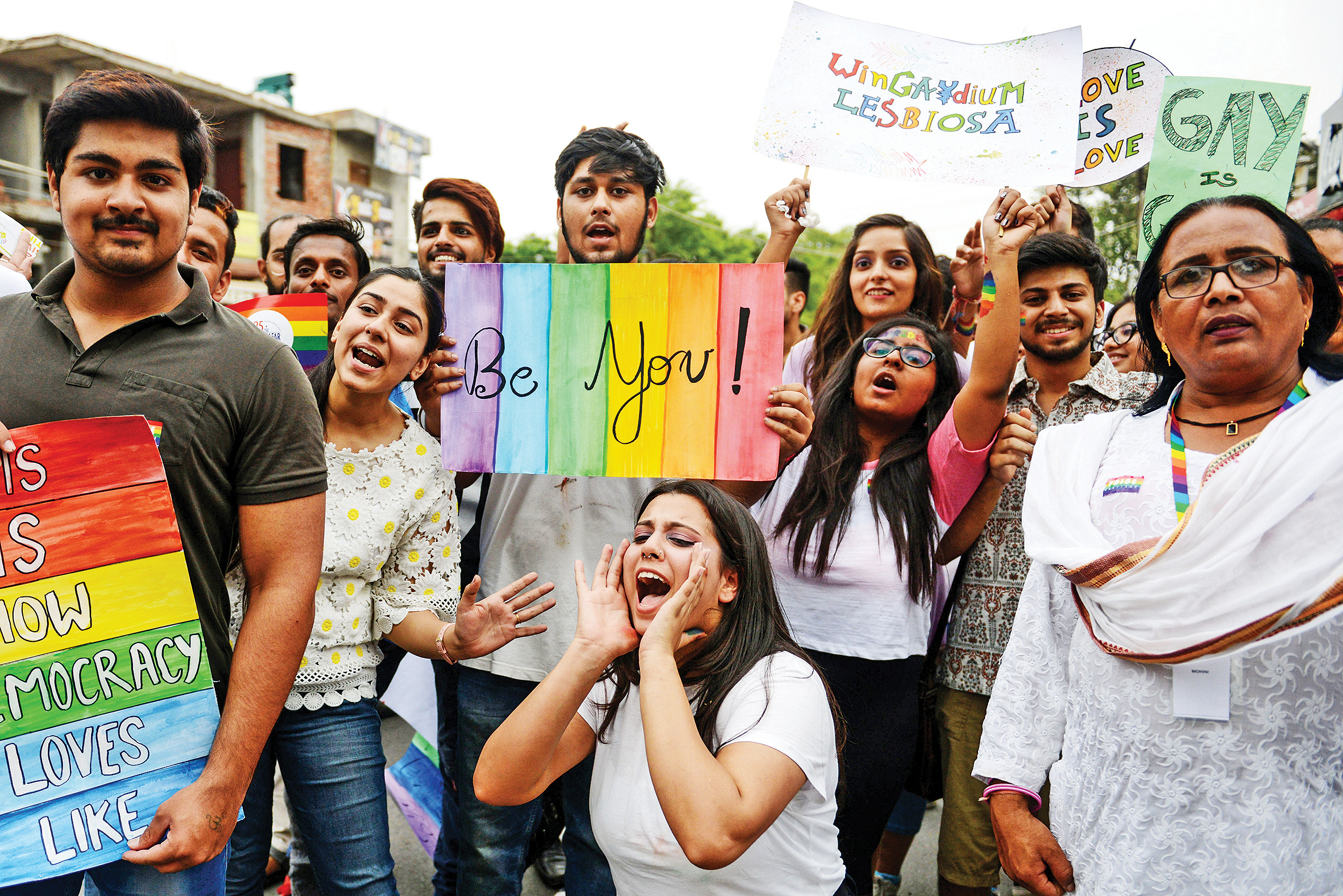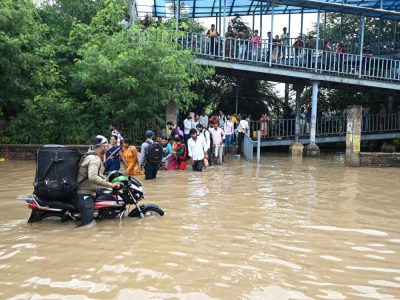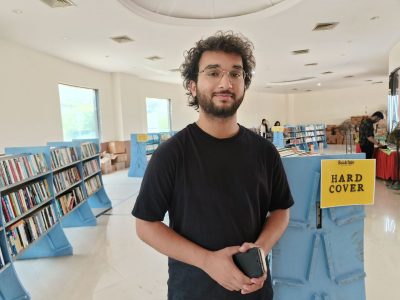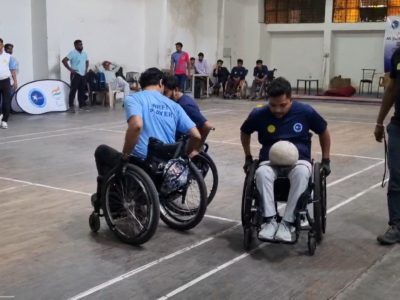India needs LGBT collectives on University campuses. Here’s why
University campuses are where ideas meet. Ideally, a university campus is meant to be a space where students feel free regardless of their identity. Queer collectives in university spaces have increased since the 377 judgement which came last year. The Supreme Court unanimously gave the verdict that consensual same sex relationships were no longer a crime.
The decision sparked celebrations, events and pride parades across the country. A steady stream of rainbow merchandise flowed into the market.
Queerness also became a point in the election manifestos of the NSUI and the ABVP during the DUSU elections. The parties proudly boasted of reservations for people from the LGBTQIA+ community in the varsity’s hostels.
Queerness comes with invisibility cloaked in the rainbow flag. The AUD administration whitewashed the infamous graffiti on the walls and demolished the azaadi wall, a wall with the pride flag and ‘azadi’ written in different scripts. The sudden move was met with strong opposition from the students and a protest march. In a country that is still unlearning queerphobia, queerness comes with the reclamation of spaces through graffiti and posters.
“The ‘azadi’ wall is only the start. This whitewashing is representative of larger systematic erasure of all assertions of student politics and of marginal identities that has already been set in motion. The administration might try to package it as infrastructural betterment, but we all know the extreme-right rhetoric of censorship that it mirrors,” said the Ambedkar University Queer Collective in a public statement.
This wasn’t the first time Ambedkar University saw the erasure of queer spaces. Earlier this year, the trans memorial wall at the varsity was vandalised with bills and pamphlets. The wall was commemorated in memory of trans gender people killed in India.
It is not uncommon for the administration to oppose queer groups within the campus. In Jesus and Mary College, University of Delhi, the administration refused to grant students the required permissions for the formation of a queer collective. The collective has resorted to operating underground now.
Queer collectives operating in public also comes with the privilege of being out to the world, a privilege only a few have. Queer collectives mean to be safe spaces for people from the community. The legalisation of the safe space comes with the burden of going to the administration and seeking permission. Otherwise, the queer identity is lost within the university campus, often overlapped by other identities and reduced to a group of people.
“We don’t talk about in front of other students and faculty members for the fear of being outed,” adds Rishi Raj.
“Our journey hasn’t been smooth, but on the whole the administration’s support for us has grown over the years. We believe there is a lot of scope for the administration to explicitly flag and address issues towards the community, such as casual queerphobia, gender neutral bathrooms, among many, ” said Kumaresh Ramesh, from Saathi, the IIT Bombay queer collective.
“The definition of what constitutes “queer friendly” would, for obvious reason, vary according to the one who’s responding to the question. Perhaps, for the administration, taking no part in actively promoting/encouraging/helping queer voices raise awareness on and around queer issues and demands, whilst parallelly “allowing” the existence of queer politics on campus would constitute being “queer friendly”. However, for queer collectives on campus, active support/allyship in the form of enthusiastic support, funding, formalisation on terms set by the members of the collective would mean that they were extended a “ queer friendly” safe space by the administration,” says Soumya Jayanti from the Ambedkar University Delhi Queer Collective (AUDQC)
“I won’t call the administration ‘queer-friendly’ but rather ‘queer-tolerant’. When we went to the admin for the formalisation of the collective, they denied us permission on since this is an ‘apolitical campus’,” says Rishi Raj, a Delhi-based queer activist.
The existence of a queer collective becomes a political act in itself, the battle for a queer collective begins with reclaiming spaces, fighting queerphobia while carrying the onus to sensitise the campus on queerness.
“We haven’t faced any opposition from the administration, but we have faced passive queerphobia from the students sometimes,” says Shruti Saunik, from Ambar, the IIT Kharagpur queer collective.
“The student body seems welcoming now but we expect obstacles to come our way in the future as we become more visible in the college,” says members of the queer community from Ramanujan College, University of Delhi.
“We were criticised initially by people. One of the things being said was, ‘Why do you people even exist in premier institutes?’ The lack of knowledge causes this criticism,” says Rahul from Orenda, the IIT Gandhinagar queer collective.
“Politics still remains largely hegemonized by Savarna Cis-Het people. Moreover, other forms of aggression from the administration include the azaadi wall being taken down or the trans memorial wall being vandalised/covered with bills, among many. Or certain right-wing groups vandalising our walls with hyper-nationalist slogans in an attempt to intimidate,” says Soumya Jayanti from the AUDQC.
Queer collectives exist in spaces outside university campuses too, usually in the metropolitan cities. They see an influx of upper class crowd and pride-themed parties. While there is nothing wrong with that, queer collectives operating within universities face multitude of challenges without the adequate aid to fight their battles. Campus collectives are bound by the rules of the university, which could prove to be restraining.
In a country where activist spaces are usually dominated by cis-hetero people, the queer collectives need to push harder to be more inclusive to include people of different gender and sexual identities as well as caste and regional identities. Sex education and awareness needs to be reformed in educational spaces to ensure that the community faces less violence and marginalisation in the future.
www.newslaundry.com





